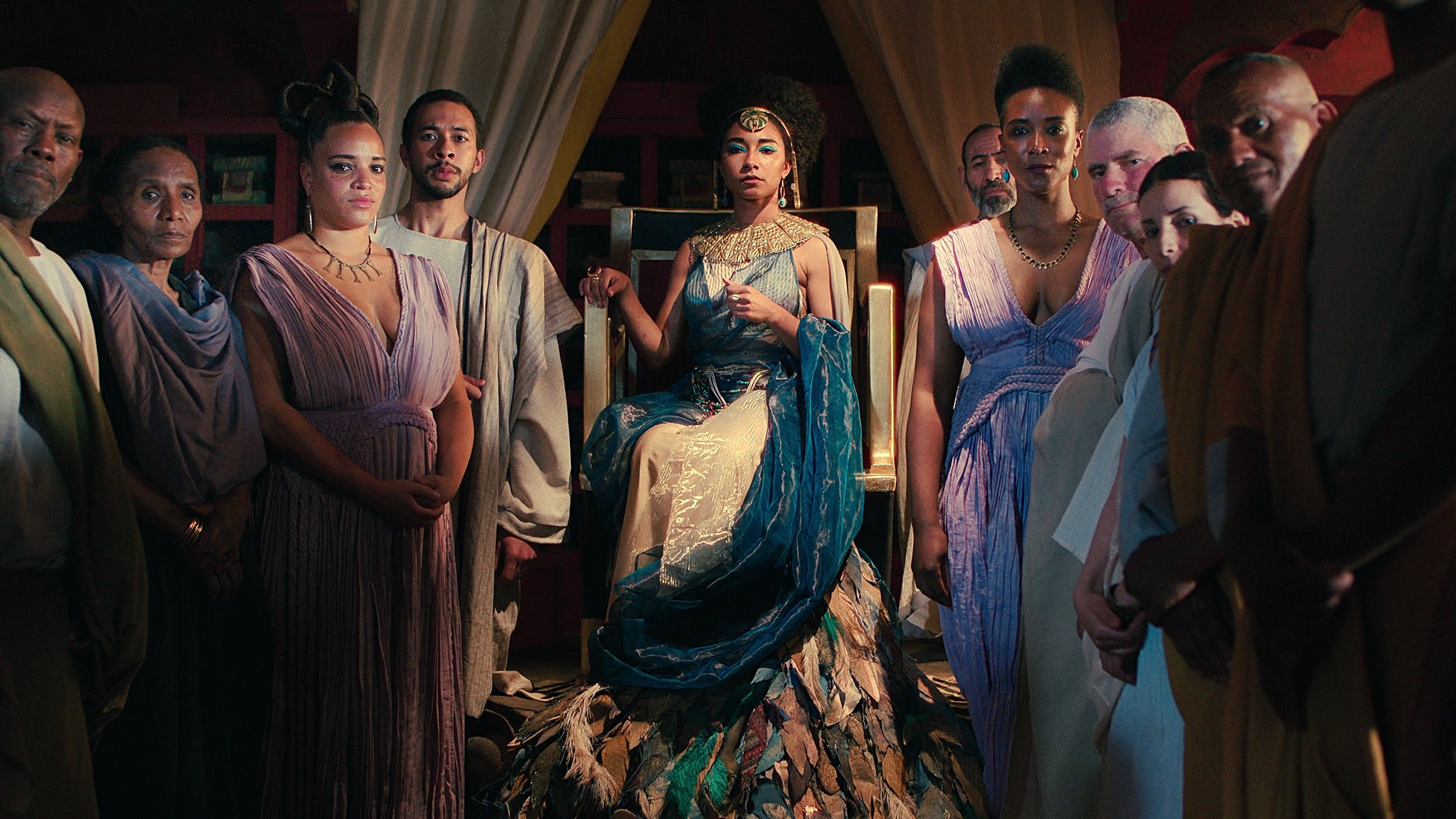Netflix’s new docuseries Queen Cleopatra aims to explore Cleopatra’s upbringing, her ascent to the throne and her reign as the last pharaoh of Egypt. It delves into her relationships with Julius Caesar and Mark Antony, examining how these alliances shaped her political strategies and influenced the fate of Egypt. Filmed in a ‘history-made-easy,’ format, we see a dramatisation of Cleopatra’s life, in modern English, interspersed with researchers and historians providing a play-by-play of her life.
However, in this format of dramatisation along with a historical push, it misses both the nuance required from a historian and the mythologising capabilities of a drama. Moreover, the docuseries aims to alleviate Cleopatra from the infamous title of the ‘seductress,’ to a political strategist, scholar, and military enthusiast.
It fails this quest because it refuses to honour the history from which Cleopatra emerges and instead uses current ideas of agency and empowerment to uplift Cleopatra’s image. This imposition of modern-day ideas does a disservice to the idea of Cleopatra and reduces her from a skilled ruler to a ‘girl boss.’
The four-episode series chronologically traces Cleopatra’s journey after the death of her father Ptolemy XII, when she was named the heir of Egypt along with her brother. The powerplay that ensued for total control of the throne has been shown in great detail. She not only faced opposition from the Alexandrians but also had several rivals in her own family as her siblings were politically ambitious.
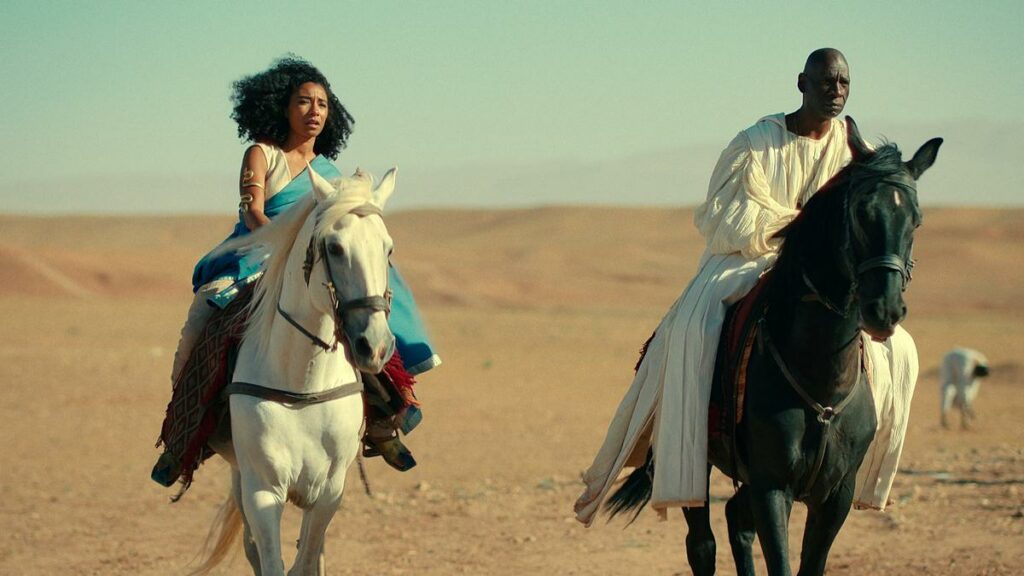
It is noteworthy that Cleopatra’s political ambitions were seen as more noble and righteous than her younger sister Arsione’s. In building up Cleopatra, Arsinoe is ascribed the role of the scheming seductress that Cleopatra’s legacy is being purged of.
The docuseries aims to alleviate Cleopatra from the infamous title of the ‘seductress,’ to a political strategist, scholar, and military enthusiast. It fails this quest because it refuses to honour the history from which Cleopatra emerges and instead uses current ideas of agency and empowerment to uplift Cleopatra’s image.
Indignant, forthright, self-assured, and calm even in the worst of circumstances, Cleopatra’s depiction is clearly driven by the need to cement a historically verifiable leading lady. There are several shots of Cleopatra poring over military plans and advising changes to Roman architectural plans.
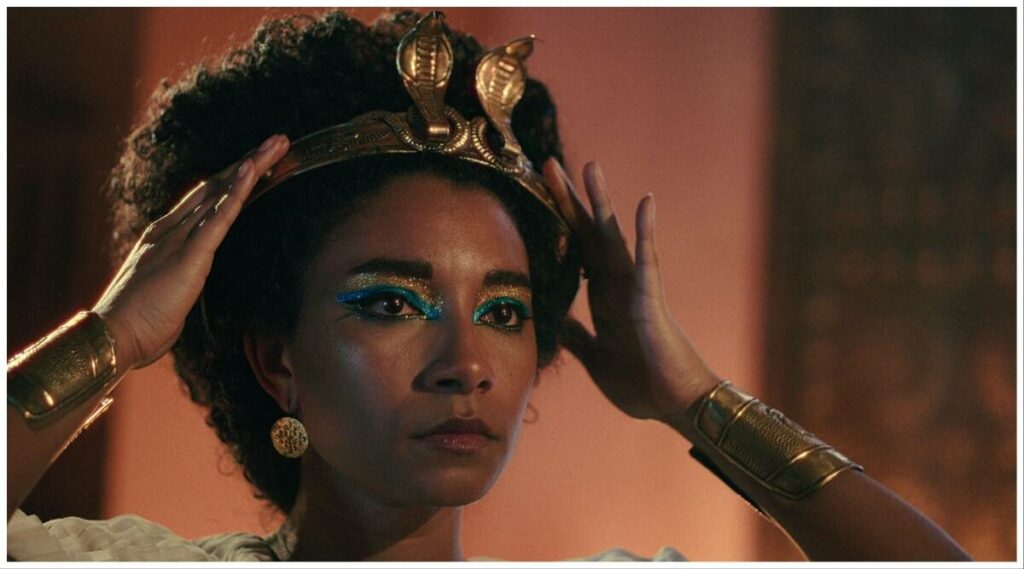
There are also instances of Cleopatra in excruciating pain as she delivers five children at a time when the medical fitness of the mother was not verifiable during childbirth. She is a scholar who replies with zingers in a room full of ‘sexist,’ Roman men. A woman who takes tough decisions and uses every opportunity strategically.
The show provides us with a perfect woman in the guise of a history documentary. Even when judged purely as drama or historical fiction, the show falls into traps of deifying historical women by making them ‘untouchable,’ instead of giving their human limitations and strengths respect and consideration. It leaves us with a panegyric description rather than a multidimensional character.
Traipsing the line between history and drama
Jada Pinkett Smith, a member of the production team, stated that the docudrama was about providing more representation of stories of black queens and revealing the truth about Cleopatra’s story. However, the show wavers under the burden of educating the audience.
In addition, the narrative style and the background to the story shared by prominent historians and scholars of the field are very unlike commentary on a historical event. The study of history involves studying source materials which give us information.
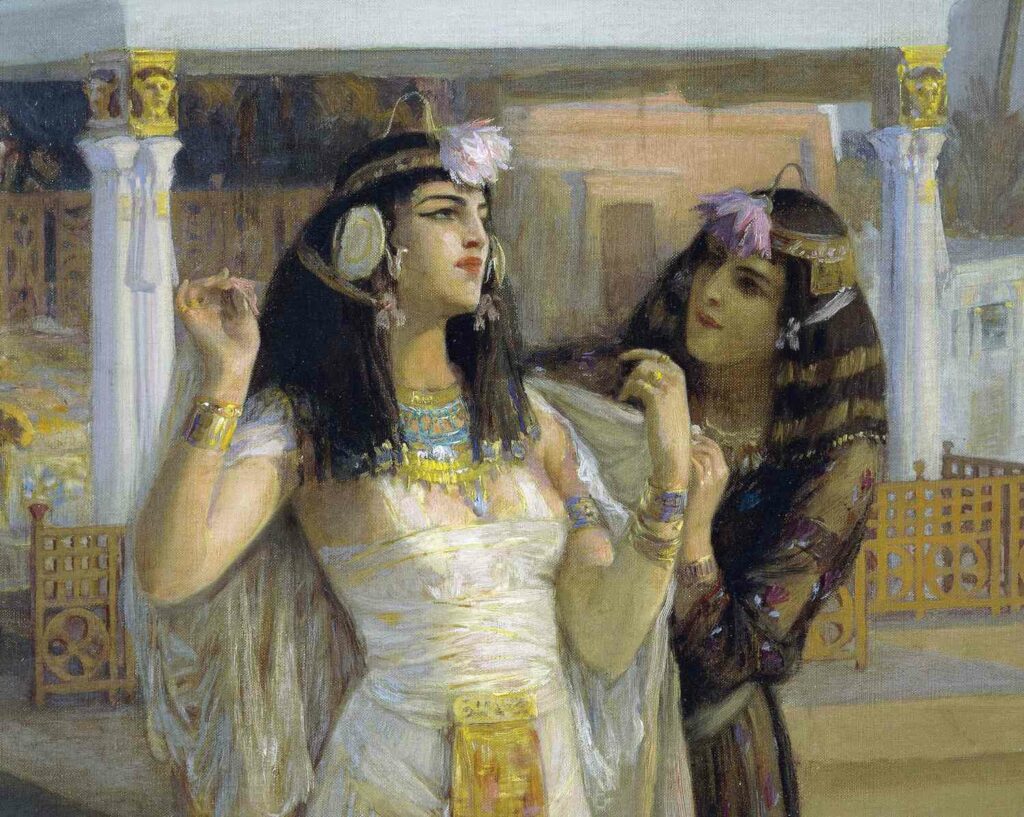
The interpretation of this source material is often contested and even the source material itself does not speak in a unified, unbroken, and consistent line. Regardless, the top scholars have provided a narration so bereft of historical nuances and entirely reductive of Queen Cleopatra herself.
One of the scholars on the show Islam Issa rejoices in the fact that the story of Cleopatra is so powerful because “everyone can imagine her in their own way.” Debora Heard, also a researcher on the show, stated that the depictions of Cleopatra change with who is depicting her. This was stated in the context of the controversy around Cleopatra’s skin colour.
However, this can also be used to understand that sources are perhaps depicted in many ways. It would have been interesting to watch docuseries that unfold the idea of Cleopatra through a conscious reading of the sources. It could have revealed the nature of her hurdles, for instance, the Egyptian intelligentsia against her, what prompts the misreading of Cleopatra as a narcissistic woman in history and much more.
Instead, scholars are speculating about Cleopatra’s sexual prowess with Julius Caesar. Similarly, when Marc Antony and Julius Caesar take up a wife in Rome despite courting Cleopatra, the scholars rush to assure the audiences that Cleopatra, ‘in her mind,‘ understood that marriage was often a socio-political requirement.
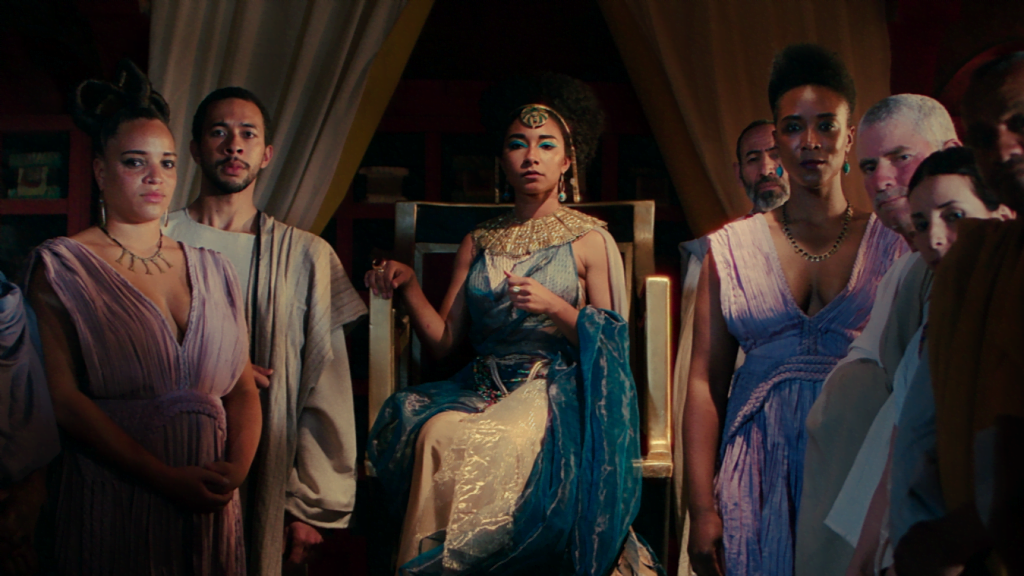
It was to assure modern audience sensibilities of monogamy and faithful companionship. Such metrics of emotional self-sufficiency and other subtle messaging were not a requirement to assess the greatness of the Queen since such considerations were not even a metric.
Thus, the format of the show was not intrinsically faulty. However, the messages conveyed and highlighted could have taken aid from the discipline of history to produce a reading of Cleopatra that truly afforded us a multidimensional representation of a historical queen.
What ‘Queen Cleopatra’ gets right
The show succeeds in some ways in manipulating the historical mould. History is often traced through political events or the successes and failures of men. In showcasing the events of Rome through Cleopatra’s lens, it elevates her historical role from a passive figurehead to a more active one.
In fact, the show links Julius Caesar’s murder to other factors like his association with Cleopatra. While the veracity of linking Cleopatra to a causative factor may be murky, it is an interesting way of using perspective to look at historical events.
The show could have perhaps benefitted from removing the burden to educate and provide the audiences with a thrilling drama instead. Such a format would have given the showrunners the creative liberty to model a strong lead. However, it is to be noted that this was also an attempt by marginalised communities to aim to find representation in history.
Moreover, the show also does parallel myth-making for Cleopatra when they show that her daughter Cleopatra Selene is the only one among her children who gets to retain a seat of power in Egypt through marriage to the King of Numidia. The legacy is further traced when Cleopatra Selene’s son Ptolemy also enters the Roman nobility. Even though Cleopatra was the last Pharaoh of Egypt, tracing her descent through her daughter and grandson provides longevity to Cleopatra’s presence.
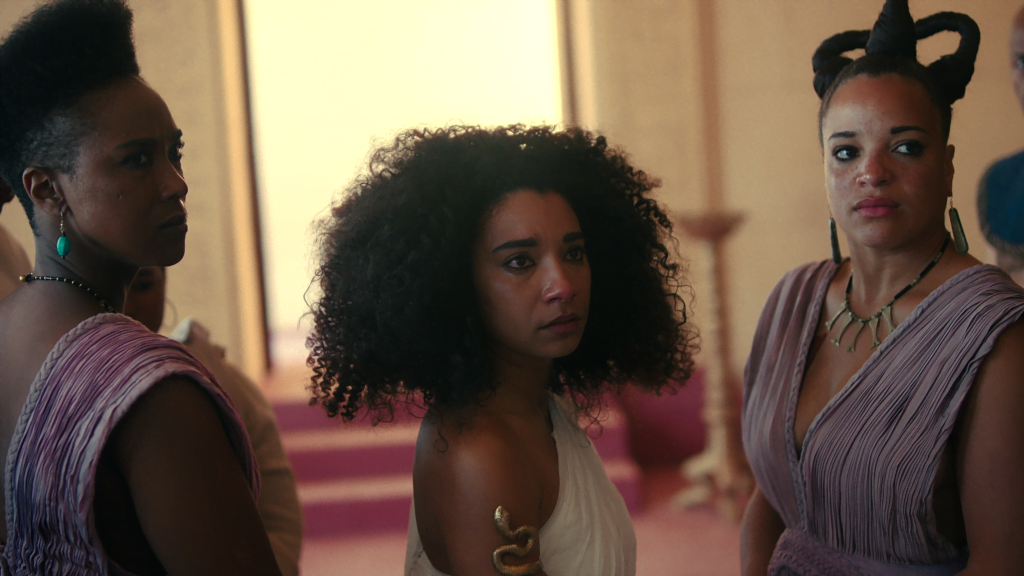
The show could have perhaps benefitted from removing the burden to educate and provide the audiences with a thrilling drama instead. Such a format would have given the showrunners the creative liberty to model a strong lead. However, it is to be noted that this was also an attempt by marginalised communities to aim to find representation in history.
Scholarly works and academia are fields dominated by people from more privileged sections of society. Consequently, the subjective reading of sources by people not from the community may follow a tendency to play into existing biases and misrepresent historical figures. The docudrama format could thus be an interesting alternative medium for exploring histories and providing audiences with the icons they require.
Overall, the series may disappoint both viewers who wanted to self-educate through a documentary and those who wanted a historical drama. However, it may leave audiences with a new way of seeing. A greater exploration of such formats with an impetus to ensure historical consideration may not only be knowledgeable but may also evolve new readings of historical icons who have been ascribed certain values in traditional academic writing. The medium provides opportunities to humanise characters as well.
About the author(s)
Sakshi (she/they) is a student pursuing History at St. Stephen's College, Delhi University. They are interested in issues of gender, sexuality, education and culture. They love game nights, a good film and a sleeping in.
